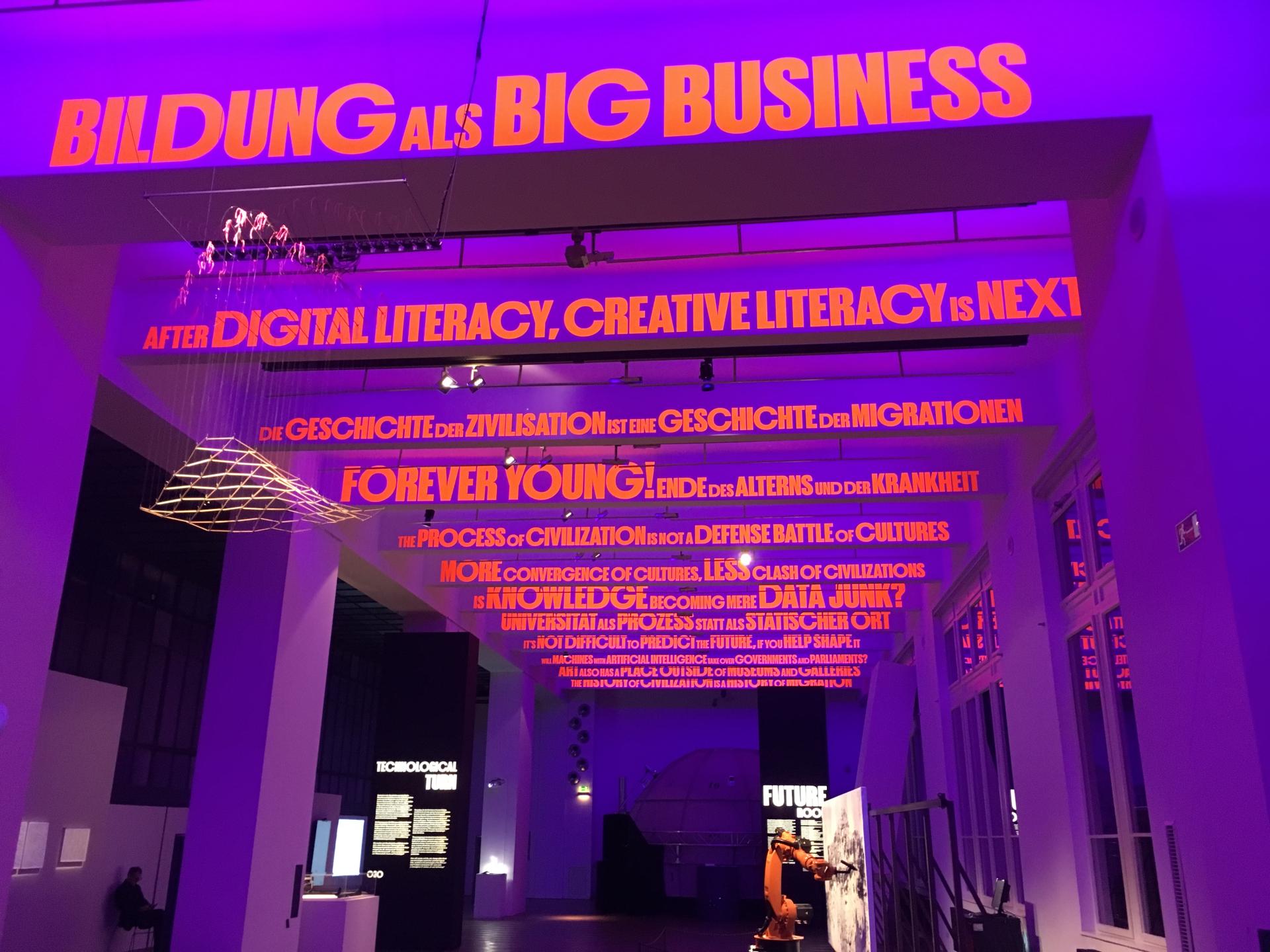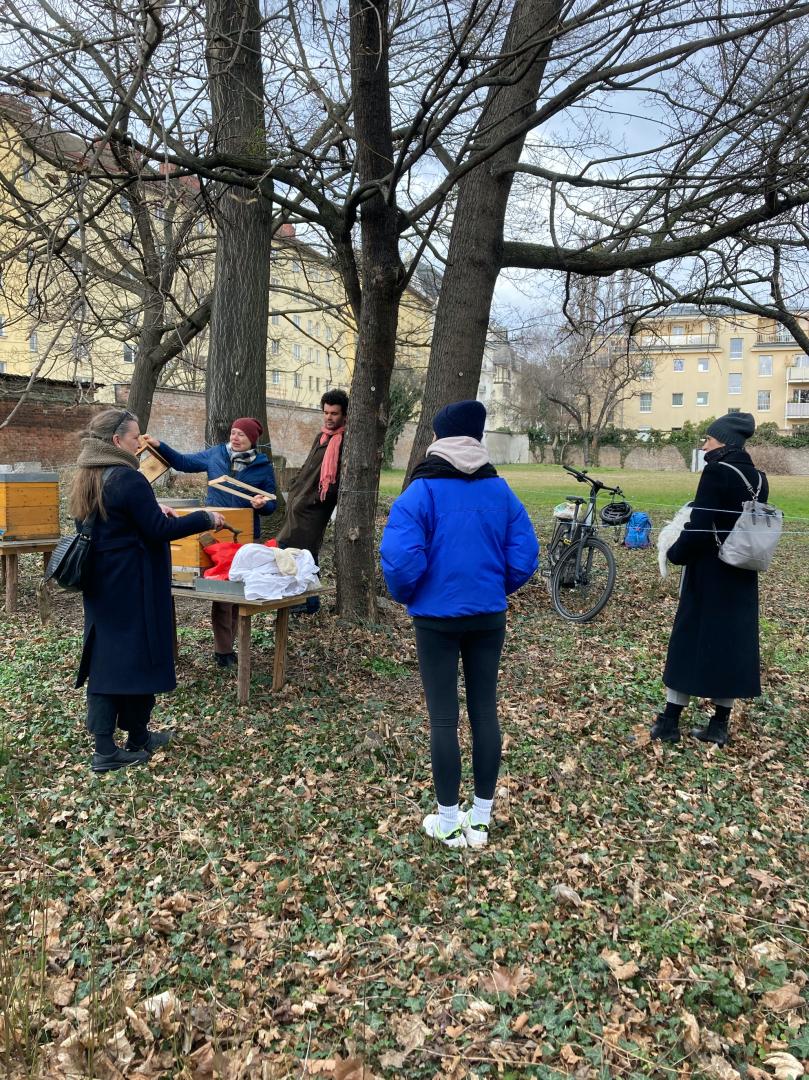IPSD
Basic information
Project Title
Full project title
Category
Project Description
The department International Programmes in Sustainable Developments focuses on the development of innovative arts-based, cross-, and transdisciplinary education to meet the current requirements for future-oriented university education on a content and structural level. Its international study programmes connect the topics sustainability, aesthetics, and inclusion on a global level, and equip students with the competencies, skills and abilities they need to tackle the Grand Global Challenges.
Project Region
EU Programme or fund
Description of the project
Summary
The department International Programmes in Sustainable Developments (IPSD) was founded at the University of Applied Arts Vienna in 2019 as a new hub for innovative, international master’s programmes and cross-disciplinary projects. In close cooperation with European and non-European universities and institutions, highly innovative, inter- and transdisciplinary study programmes with an emphasis on artistic and creative competences are developed and implemented.
The international master’s degree programmes focus on a cross- and interdisciplinary education to meet the current requirements for future-oriented university education on a content and structural level. They are designed to equip students with the competencies, skills and abilities that will serve them in the future as an indispensable basis for interdisciplinary and transdisciplinary engagement with the Grand Global Challenges, starting from arts-based and aesthetic strategies.
The department's aim is to explore and define what such a university education should look like, and to apply these concepts in academic subjects which are both experimental and contemporary.
Beside the development and implementation of innovative study programmes, outreaching projects are realised at the department IPSD in cooperation with various partners in academia and non-academic civic groups.
Key objectives for sustainability
The master’s degree programmes – the first of which Global Challenges + Sustainable Developments, a joint programme with Tongji University in Shanghai, has been established in 2020 – build on artistic and creative strategies as fundamental and prerequisite skills young people will need today and in the near future to engage with the Grand Global Challenges. Sustainability topics therefore are a key part of the teaching and research activities of the department. The UN Sustainable Development Goals play a fundamental role in all course offers and other activities such as guest lectures, special workshops, cooperation projects, as well as in the students' projects themselves.
Not only is it a fundamental part of the department's tasks to evaluate and develop new, future-oriented forms and structures on the level of graduate university education - including a strong focus on inclusion, equality, and accessibility -, but does it put an emphasis in its research and collaboration activities on the UN Sustainable Development Goal 4 "Quality education".
Thus, the department IPSD is a cooperation partner of UniNEtZ, an alliance of 17 Austrian universities ("Alliance of Sustainable Universities"), where IPSD's work focus is, obviously, put on the SDG 4 "Quality Education".
Another recent cooperation project is conducted with the Wanderers of the Changing World, a civic initiative which combines research, education and media-art projects while walking across Europe to understand regional experiences of Climate Change. IPSD's head Katharina Gsoellpointner is an active member of the Climate Walk's knowledge association.
Last not least, the department IPSD is embedded in an art university which since many years has been engaged in climate activities and politics (Green University) and which has taken on the challenge to face the urgent issues of the global climate crisis and its social, economic, and political consequences.
Key objectives for aesthetics and quality
The University of Applied Arts Vienna has been a key player for many years when it comes to the development of new, future-oriented tertiary education models. Its very own societal task is to educate young people in aesthetic and creative strategies.
The main objective of the department IPSD is to realise innovative study programmes which connect education in artistic and aesthetic strategies with an inter-, trans-, and cross-disciplinary approach to foster systemic thinking and acting in the context of the Global Challenges. Solving the grand problems of the present and the future will only be achieved by having knowledge and experience in strategies which artists and designers have been using for a long time. We believe, that it is not sufficient any more to train young people only in the specialisation of (scientific and scholarly) disciplines, but that it is indispensable to give them a toolkit with a wide range of aesthetic, cultural, and social abilities.
This key objective has been met in the establishment of the department and in the design and conception of its first international master's programme Global Challenges + Sustainable Developments already, which has been realised in tight cooperation with Tongji University in Shanghai, and of which the goals are to connect sustainability, aesthetics, and inclusion on a global level.
This curriculum is a balance of fundamental training in artistic strategies, inter- and transcultural competences, and in sustainability topics, together with a large number of ECTS in free elective courses from the wide range of art, design, and courses in cultural theories offered by the University of Applied Arts Vienna.
The students have to realise a cross-disciplinary master's thesis which consists of the development and the realisation of an inter-, cross-, or transdisciplinary research project connected to a topic from the SDGs, using artistic as well as cross-disciplinary strategies.
Key objectives for inclusion
The department's international study programmes and projects have a fundamental approach to politics of inclusion and diversity, as has the University of Applied Arts as a whole. Inclusion is not only enabled by providing all necessary facilities, and structurally as well as economically supportive infrastructure, but is also strongly promoted by addressing underprivileged groups on all societal levels.
Young people from all over the globe are addressed to study at the department. Since the programmes do not collect tuition fees, they are accessible to persons from all economic backgrounds. Additionally, all students are financially supported by the University of Applied Arts Vienna during their exchange year in Shanghai.
Disabled persons are especially taken in consideration when it comes to the selection of students for admission as well as in regard to staff.
Gender and diversity aspects play an important role in the selection of students, as well as in the composition of the teaching and research staff.
There is a Safeguarding Policy for Protecting Vulnerable Individuals which ensures that all persons who work and study at the University of Applied Arts Vienna, are called upon to recognize the need to protect vulnerable individuals in a reflective and caring manner as a fundamental aspect of the work environment and of the interactions in our daily lives. All persons are expected to respect the dignity of every individual and actively support efforts to ensure the well-being and security of disadvantaged and endangered persons.
The wellbeing of all students and staff is a priority at the University of Applied Arts Vienna, and wellbeing, disability and mental health support are ensured by a safe, confidential and non-judgemental space.
Results in relation to category
The establishment of the department "International Programmes in Sustainable Developments" started two years ago and has realised its first master's programme already in 2020. Within the category we apply for it represents the, one could say, genuine example per se for "Interdisciplinary education models". The department's fundamental approach is to educate young people from all over the globe in inter-, trans- and cross-disciplinary competences, starting from artistic, design, and creative strategies.
The results/impact achieved by the establishment of the department today are best seen in the success of the great number of applications, both on the side of students as on the side of teaching staff, as well as in the realisation of this innovative department itself.
We are convinced that within a few years many other universities worldwide will follow our example and establish new studies which fundamentally build on the triangle of aesthetic education, sustainability topics, and inclusiveness as fundamental presuppositions for a new kind of university education.
How Citizens benefit
The department's master's programmes are orientated exclusively to educate young people in abilities which are fundamental to approach problem solving thinking and acting. As such, students' projects have to approach social and global topics considering a transdisciplinary approach which involves non-academic and cooperation partners and stakeholders from all societal groups. Graduates therefore will be experienced in the need to involve not only academic and experts from various disciplines in the realisation of, for instance, environmental education projects, but to involve civil society groups from scratch.
Thus, during their courses and for their master's theses students are encouraged to develop projects which include non-academic fields, such as citizen's initiatives, NGOs, public institutions, etc.
Impacts of the involvement of civil society groups may only be tracked down and described after the first generation of students in "Global Challenges + Sustainable Developments" has finished the programme in 2023.
Innovative character
Innovativeness has been a key element when the department was established in 2019. The department and its programmes are vitally innovative in regard to an understanding of tertiary education which has to be conceived in radically new ways if we want to provide young people with the necessary skills, abilities, and competences they need to tackle the Grand Global Challenges. Although many study programmes have been established worldwide with the entitlement to train students also in non-disciplinary fields (e.g. "Studium Generale"), none of these has put its focus on the training in artistic and creative strategies as the starting point. As such, the focus on these areas of interdisciplinary education is highly innovative and so far cannot be found anywhere else.




